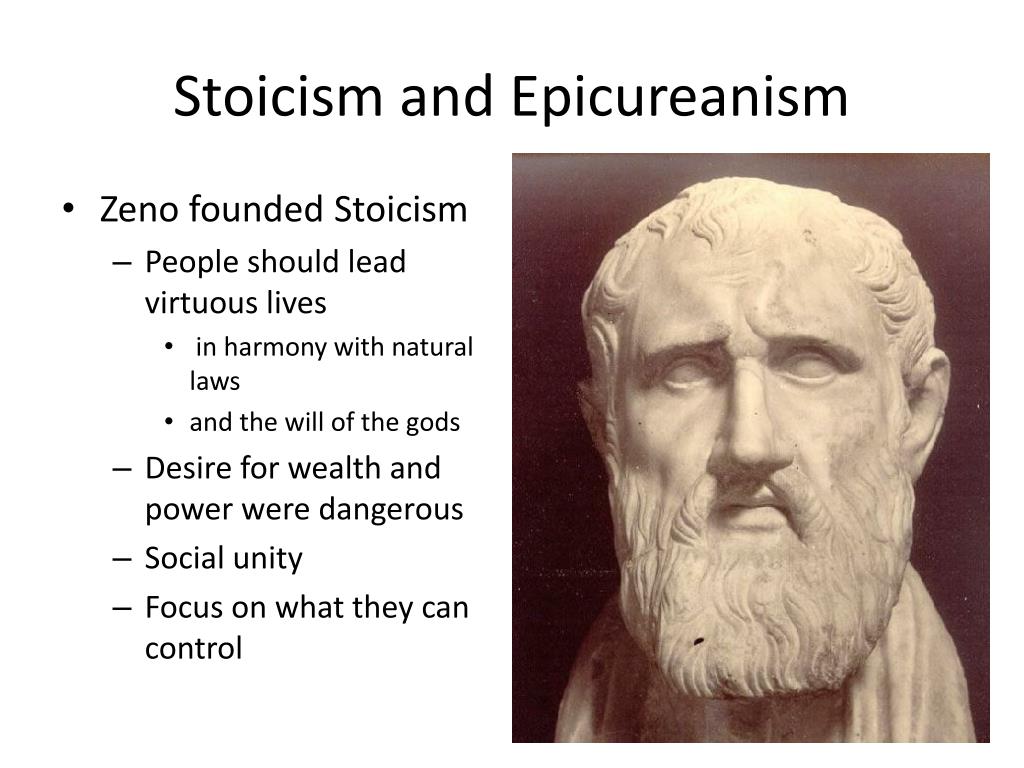Title: The Influence of Stoicism and Early Hellenistic Philosophy on Christian Ethics: A Comparative Analysis
Introduction:
Throughout history, the development of ethical frameworks has been greatly influenced by various philosophical schools. In particular, the influence of Stoicism and Early Hellenistic Philosophy has played a significant role in shaping Christian ethics. This comparative analysis aims to delve into the philosophical underpinnings of Stoicism and Early Hellenistic Philosophy, exploring their impact on Christian ethics and the broader implications for moral thought.
Stoicism emerged as a prominent philosophical movement during the Hellenistic period, offering a systematic approach to ethics. Emphasizing the cultivation of virtues and the pursuit of moral excellence, Stoicism sought to guide individuals towards leading a virtuous and fulfilling life. Concurrently, Early Hellenistic Philosophy, which encompassed a diverse range of schools such as Epicureanism and Cynicism, explored similar moral themes that would later intersect with Christian teachings.
This article will begin by delving into the core tenets of Stoicism and Early Hellenistic Philosophy, highlighting their similarities and differences. From there, it will analyze the profound impact of these philosophical movements on the emergence and development of Christian ethics. By examining key ethical principles in Christianity through a comparative lens, we can shed light on how Stoic and Hellenistic ideas influenced early Christian moral teachings.
Moreover, this comparative analysis will explore the practical implications of incorporating Stoic concepts into Christian ethics, including notions of virtue, duty, and self-control. In understanding how Stoic and Hellenistic ideas harmonized with Christian teachings, we gain valuable insights into the broader historical and cultural contexts that shaped the ethical principles we see in Christianity today.
By undertaking this comparative analysis between Stoicism, Early Hellenistic Philosophy, and Christian ethics, we can discern the intricate relationships and interdependencies between these philosophical traditions. Through a deeper understanding of their shared and distinct ethical foundations, we can appreciate the diverse influences that contributed to the development and expansion of Christian moral thought.
In conclusion, the examination of Stoicism and Early Hellenistic Philosophy and their impact on Christian ethics offers a valuable opportunity to comprehend the complex intellectual and cultural exchanges in the ancient world. By exploring the intersections between these philosophical traditions, this article aims to contribute to a richer understanding of how ethical principles evolve, adapt, and shape our moral frameworks across time and cultures.
1. Stoic Principles in Christian Morality: A Comparative Study
In this study, we delve into the principles of Stoicism and how they align with Christian morality. Stoic philosophy, with its emphasis on self-control, moderation, and attaining inner tranquility, bears resemblances to key values in Christianity such as humility, forgiveness, and loving others. By comparing these principles, we aim to highlight the commonalities and differences between Stoicism and Christianity, shedding light on how Stoic teachings can enhance Christian moral values.
2. Examining the Impact of Early Hellenistic Philosophy on Christian Ethical Values
This study delves into the influence of early Hellenistic philosophy, particularly Stoicism, on the development of Christian ethical values. The ethical teachings of Stoicism, such as the importance of virtue and the pursuit of wisdom, had a profound impact on early Christian thinkers. By analyzing the similarities and differences between Stoic ethics and Christian ethics, we gain a deeper understanding of how early Hellenistic philosophy shaped the moral framework of Christianity.
3. The Role of Stoic Virtues in Shaping Christian Ethics: A Comparative Analysis
In this comparative analysis, we explore the role of Stoic virtues in shaping Christian ethics. Stoicism emphasizes virtues like wisdom, courage, justice, and temperance, which are also valued in Christianity. By examining the similarities and divergences between Stoic virtues and Christian virtues, we uncover how Stoic principles influenced the development of Christian moral values. This analysis provides valuable insights into the interplay between Stoic and Christian ethics.
4. Morality and Ethics: Bridging the Gap between Stoicism and Early Christianity
This study focuses on bridging the gap between Stoicism and early Christianity by examining their shared ethical foundations. Stoicism emphasizes living in accordance with nature and developing virtues, while early Christianity places emphasis on love, compassion, and righteousness. By exploring the commonalities and divergences between Stoicism and early Christianity’s approaches to morality and ethics, we aim to provide a bridge that connects these two philosophical traditions and fosters a deeper understanding of both.
5. Stoicism and Christian Ethical Framework: Uncovering the Influences
In this exploration, we uncover the influences of Stoicism on the ethical framework of Christianity. Stoic ideas, such as practicing self-discipline, accepting events beyond our control, and living in harmony with nature, have left a lasting impression on Christian moral teachings. By uncovering these influences and examining their impact on Christian ethics, we gain valuable insights into the interweaving of Stoic principles within the Christian ethical framework. This study offers a nuanced understanding of the synergies between Stoicism and Christianity.
Stoicism and Early Hellenistic Philosophy Concerning Christian Ethics
Influence of Stoicism on Christian Ethics:
- Stoic philosophy emphasized the cultivation of virtues such as justice, wisdom, courage, and self-control. Many of these virtues align with Christian ethics and teachings.
- Stoicism taught that individuals should live a life of moral purpose and strive for the highest good, which resonated with Christian teachings centered around righteousness and the pursuit of holiness.
- Stoicism’s emphasis on self-discipline and moderation corresponded with the Christian virtues of temperance and self-control.
Early Christian Philosophers and Stoicism:
- Early Christian writers such as St. Paul and St. Clement of Alexandria were heavily influenced by Stoic philosophy and incorporated Stoic concepts into their teachings.
- St. Paul’s emphasis on virtue, self-control, and the importance of living by the Spirit can be seen as influenced by Stoic ethics.
- Early Christian thinkers like Justin Martyr and Clement of Alexandria used Stoic ideas to defend Christian beliefs and morality against pagan critiques.
Key Stoic Concepts and their Relationship to Christian Ethics:
- The Stoic concept of oikeiosis, which refers to the innate human attraction towards social harmony and justice, aligns with the Christian teaching of love for one’s neighbor and the pursuit of justice.
- Stoicism’s notion of living in accordance with nature can be seen as akin to the Christian idea of living in harmony with God’s divine plan.
- The Stoic teaching of apatheia, often misunderstood as indifference, actually referred to the absence of destructive emotions and passions. This corresponds to the Christian emphasis on cultivating love, joy, and peace while avoiding sinful inclinations.
Stoic Virtue Ethics in Early Christianity:
- Early Christian theologians adopted Stoic notions of virtue ethics, emphasizing the cultivation of virtues such as prudence, justice, fortitude, and temperance.
- The Stoic understanding of the moral responsibility of each individual to exercise moral virtue aligned with Christian teachings of personal moral agency.
- St. Augustine, an influential early Christian thinker, incorporated Stoic ethics into his theological reflections, particularly in his discussions on virtues and the nature of the soul.
It is worth noting that while there are clear parallels between Stoic and early Christian ethics, there are also significant differences in their underlying philosophical and theological perspectives. Nonetheless, Stoicism played a pivotal role in shaping early Christian ethical thought and continues to influence Christian ethics to some extent today.

Influence of Stoicism and Early Hellenistic Philosophy on Christian Ethics
In conclusion, this article has provided a comprehensive comparative analysis of the influence of Stoicism and early Hellenistic philosophy on Christian ethics. Through an examination of the key tenets and principles of Stoicism and its subsequent incorporation into early Christian thought, it is evident that these philosophical schools have played a significant role in shaping the ethical framework of Christianity.
Notably, Stoic concepts such as virtue ethics, the cultivation of inner peace, and the importance of self-discipline have found resonance within Christian teachings. The Stoic emphasis on living in accordance with nature and striving for moral excellence aligns closely with the idea of pursuing holiness and righteousness in Christianity.
Furthermore, the early Hellenistic philosophers, including the Stoics, provided a philosophical foundation upon which Christian theologians and thinkers built their ethical theories. The integration of Stoic ideas into Christian ethics is particularly evident in the works of influential early Christian figures such as Augustine, who synthesized Stoic thought with Christian principles.
However, it is important to acknowledge that while Stoicism and early Hellenistic philosophy have influenced Christian ethics, Christianity has also developed its own unique ethical principles based on its theological teachings and revelations. The incorporation of Stoic ideas into Christian ethics does not imply a wholesale adoption or unquestioning alignment with all aspects of Stoic philosophy.
Ultimately, this comparative analysis sheds light on the rich philosophical heritage that has shaped Christian ethics. It highlights the intricate interplay between ancient philosophical traditions and Christian thought, underscoring the dynamic and ever-evolving nature of ethical frameworks. Further exploration of this topic could provide a deeper understanding of the diverse intellectual roots of Christian ethics and its continuous development throughout history.
